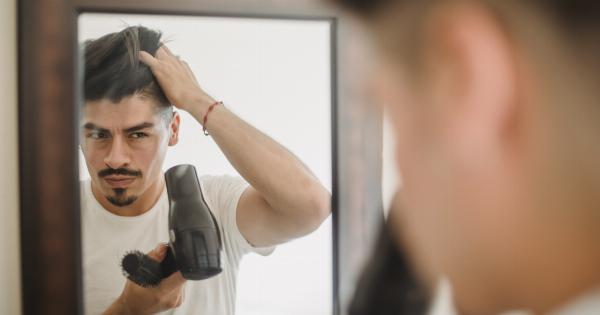There are many reasons why people may experience hair loss, from genetics to poor lifestyle choices. Regardless of the cause, losing hair can be a stressful and disheartening experience.
The good news is that there are steps you can take to stop hair loss and promote healthy hair growth. In this article, we will explore some of the most effective ways to combat hair loss and restore confidence in your appearance.
Understand the Causes of Hair Loss
Before you can begin to address hair loss, it’s important to understand what is causing it. Some common causes of hair loss include:.
- Genetics – If hair loss runs in your family, you may be genetically predisposed to it.
- Hormones – Hormonal changes, such as those that occur during pregnancy or menopause, can lead to hair loss in women.
- Aging – As we age, hair follicles may become less productive, leading to thinning hair.
- Poor Nutrition – A diet lacking in essential vitamins and nutrients can contribute to hair loss.
- Stress – Chronic stress can trigger hair loss, as well as other health problems.
Identifying the cause of your hair loss can help you determine the most effective treatment options.
Adopt Healthy Hair Habits
One of the simplest ways to prevent hair loss is to adopt healthy hair habits. This includes:.
- Gently brushing and styling your hair to avoid damage.
- Avoiding harsh chemical treatments, such as perms and coloring.
- Limiting the use of heat-styling tools, like flat irons and curling irons.
- Washing your hair regularly with a gentle shampoo and conditioner.
- Eating a nutritious diet that includes plenty of fruits, vegetables, and protein-rich foods.
- Managing stress with activities like yoga or meditation.
Incorporating these habits into your daily routine can help keep your hair healthy and minimize hair loss.
Treat Underlying Medical Conditions
If your hair loss is caused by an underlying medical condition, treating that condition may be necessary to address the problem. Some common medical conditions that can lead to hair loss include:.
- Thyroid disorders
- Anemia
- Lupus
- Polycystic ovary syndrome (PCOS)
If you suspect that an underlying medical condition is contributing to your hair loss, speak to your doctor about treatment options.
Use Hair Growth Supplements
There are many hair growth supplements on the market that are designed to promote healthy hair growth and prevent hair loss. Some popular options include:.
- Biotin – A B vitamin that is essential for hair, skin, and nail health.
- Vitamin D – Helps to regulate hair follicle growth cycles.
- Zinc – Promotes healthy hair growth and scalp health.
- Iron – Necessary for the production of hemoglobin, which carries oxygen to the hair follicles.
Before beginning any supplement regimen, be sure to speak to your doctor to ensure that you are taking them safely and effectively.
Consider Hair Restoration Treatments
If your hair loss is advanced, or if you are looking for a more powerful solution, you may want to consider hair restoration treatments such as:.
- Hair transplant surgery – Involves transplanting healthy hair follicles to areas of the scalp that are thinning or balding.
- Scalp micropigmentation – A tattooing technique that creates the illusion of hair growth by applying tiny dots of pigment to the scalp.
- Low-level laser therapy – Uses low-level lasers to stimulate hair growth and improve scalp health.
Before undergoing any hair restoration treatment, it is important to speak to a qualified professional to determine the best treatment plan for your unique needs.
Conclusion
While hair loss can be a frustrating and stressful experience, there are many effective ways to combat it and restore healthy, lustrous hair.
Whether you choose to adopt healthy hair habits, explore medical treatments or supplements, or undergo hair restoration procedures, there are many options available to help you achieve the look you desire.

























